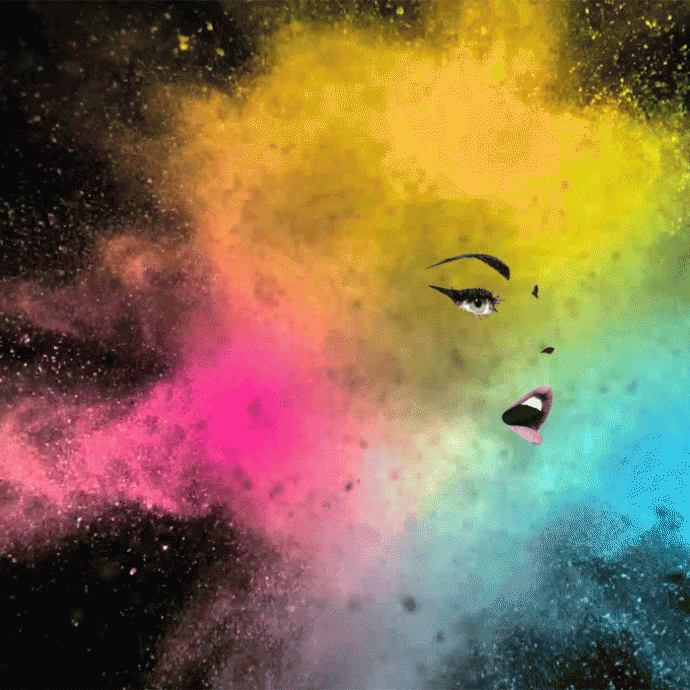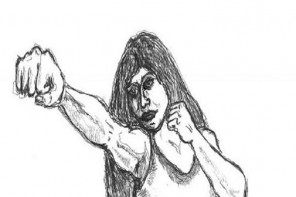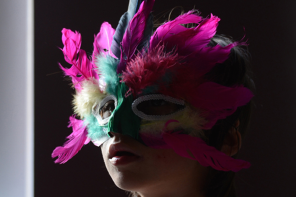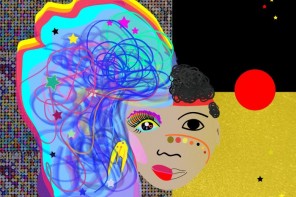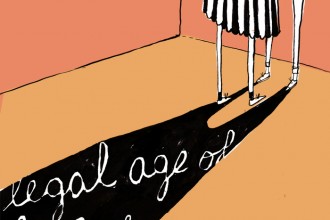Makeup is our quick fix–it is the ultimate instant gratification. When we outgrow purchasing foundation to cover our acne, we move on to one that hides any signs of growing older. Industries have built billion-dollar empires on beauty products and services. But why do we feel as though we have to “put on our face” as a start to our day? Why is it we have such low perceptions of ourselves to justify needing a fix, when there is nothing to fix in the first place?
Everyday I apply makeup, wax my eyebrows, shave the hair off my body, and burn my curls into submission. Why do I feel obligated to partake in these practices? I could be devoting those primping hours learning a new language, reading, exercising, or spending time with family and friends, instead.
Most women, including myself, wear makeup every day because it makes us feel better about ourselves. When we do not, we hear comments asking us if we are tired or sick. If you think about it, our natural faces are unrecognizable. ‘No, I’m not sick – this is how my face really looks!’ The last time I went a month without makeup I was around 13 years old, and I ran out of allowance. Why do women feel as though they need to put on a mask to face the world?
Maybe our obsession with altering our appearance has to do with all the anxiety surrounding the natural process of aging or our imperfections, in general. When we outgrow purchasing foundation to cover our acne, we move on to one that hides any sign of growing older. Makeup is the quick fix, it’s our instant gratification. It makes us feel better about ourselves. Why do we have these low perceptions of ourselves to justify needing a fix, when there’s nothing to fix in the first place?
I have worked in establishments where sending in a photo of yourself was part of the application process. I have worked in businesses where the management told my coworker to put on more makeup. I have worked in an establishment where I have been fired for the way I portray myself.
I decided to abstain from makeup for a month. This idea came about after the recently severed ties with the aforementioned establishment, coupled with a general sense of boredom by the pressure from the society we live in to be a perfectly painted, manicured “lady”.
During this hiatus, I had interviews planned. I worried; will I look less polished, less professional? It felt foreign presenting myself in front of a professional with a naked faced. Nevertheless, the interviews went well and I survived.
Initially, I found myself explaining to people that I wasn’t wearing any makeup. I felt that I had to come up with an excuse or reason for my bare face even when people did not ask for it. I caught myself thinking, ‘Wait until they see me with my makeup on – then “so and so” will look at me differently.’ Or, ‘That person would have approached me if I was all dolled up—hair, makeup, outfit all perfect.’ This sense of inadequacy fizzled out after awhile and replaced with a sense of confidence.
As the weeks passed, I found I did take better care of my skin. I made sure to wash, tone, and moisturize in the morning and at night so my bare skin didn’t just look fresh and healthy (as a result of makeup), it actually was fresh and healthy. Without makeup, you can see if you aren’t getting enough sleep or water. It allows you to listen to your body and see what it is trying to tell you. I began taking better care of my skin by protecting it with sunscreen and hydrating regularly.
However, this abstention was not only affecting me physically but mentally as well. I had a dream one night that I was putting on makeup and I was doing it all wrong, it looked horrible. When I awoke, I was afraid that I had actually put makeup on and ruined my study. It was all a dream, as I had not put on any makeup, but it made me realize that, when I could not wear makeup, it seemed more appealing than ever. I never guessed that all the makeup commercials I see on TV would tempt me so seductively to put on makeup or buy something new. Advertisements constantly bombard us with words demanding we better ourselves, using words such as “conceal”, “anti-aging” “hide” “cover flaws” “repair” “enhance”.
We need to learn how to make peace with what we consider to be “imperfections” and be easier on ourselves. When you don’t wear makeup you realize you don’t need it. Makeup is certainly an avenue to express ourselves; it is a fun and beautiful art form. Natural is also beautiful and women should brave it by going au natural more often in this world of heavy advertising and constant comparisons.
Makeup isn’t evil, but the pressure to wear it is where the iniquity stems from. During my abstention, I went from feeling limited to liberated. Society should not dictate the way you portray yourself and neither should your gender. Once you shed some of the things that are “expected” of you, you will feel more powerful… and have a little extra time on your hands.

